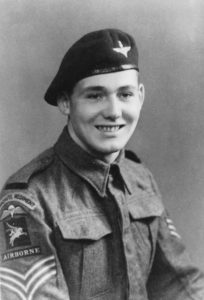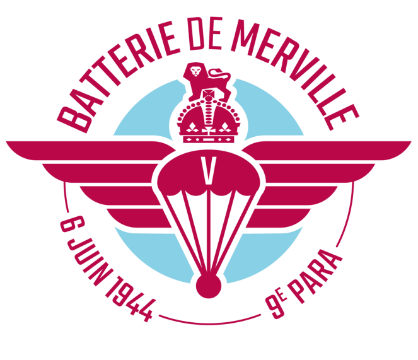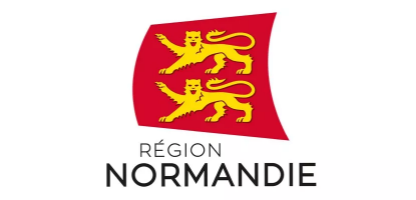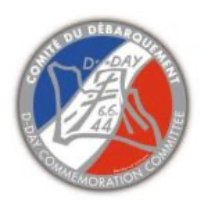Gordon newton
23/06/1924 – 30/09/2018
In 1939, when war broke out, 15 year old Yorkshire boy, Gordon Newton was working 80 hours a week in a reserved occupation producing alloy from silver paper. Like many young men he was also serving in the Home Guard.
Gordon decided that a reserved occupation was not for him and in 1942 he volunteered for the army and was posted to The Royal Sussex Regiment. However, life appeared to be more exciting in the recently formed airborne forces and in 1943 he volunteered for The Parachute Regiment. On completion of his training, he was posted, complete with red beret and two shillings extra per day airborne pay, to the 9th Parachute Battalion of the 6th Airborne Division.
The battalion’s task on D-Day was one of the most difficult for the entire division, to attack the Merville battery and destroy the long range guns. Gordon, though a parachutist, was part of the glider force. Its mission to land within the battery grounds simultaneously with the attack by the paratroopers. Gordon Newton had the dubious privilege of carrying a flame thrower which was to be used in the attack on the casemates.
Despite a rather eventful crossing due to turbulence and the arrester parachute opening his glider arrived over the coast where it came under heavy anti aircraft fire. “The German shells were going straight through the aircraft. One shell hit my flame thrower which rendered it inoperable”. The glider landed some distance from the battery. Gordon and his colleagues eventually joined up with the rest of the battalion and continued the combat until September when the division returned to England.
Christmas 1944, Gordon’s battalion participated in the defensive action in the Ardennes to stop the German counter attack, “The Battle of the Bulge”.
Operation Varsity followed on 24th March 1945. During this operation, Gordon jumped with his battalion. He fought with the division across North Western Europe to Wismar on the Baltic Coast and took up positions there thus preventing the Russians from “liberating” Denmark.
Once the war in Europe was over Gordon’s battalion was to be sent to the Far East to fight the Japanese but the war ended and 9th Battalion was directed to Palestine on peace keeping duties.
Gordon Newton was finally demobilised in 1947, as a corporal aged just 22, after having fought in three of the hardest won battles of the war.
In July 1947, he chose to make a career in the Metropolitan Police Force.
In 1997, Gordon Newton became a Freeman of the City of London; he was made a Chevalier of the Legion d’honneur by the French government in 2005 and, in June 2006, a Freeman of the town of Merville-Franceville.
He returns to Normandy every year leading the pilgrimage to the Merville Battery as Secretary of 9th Battalion Reunion Club.








